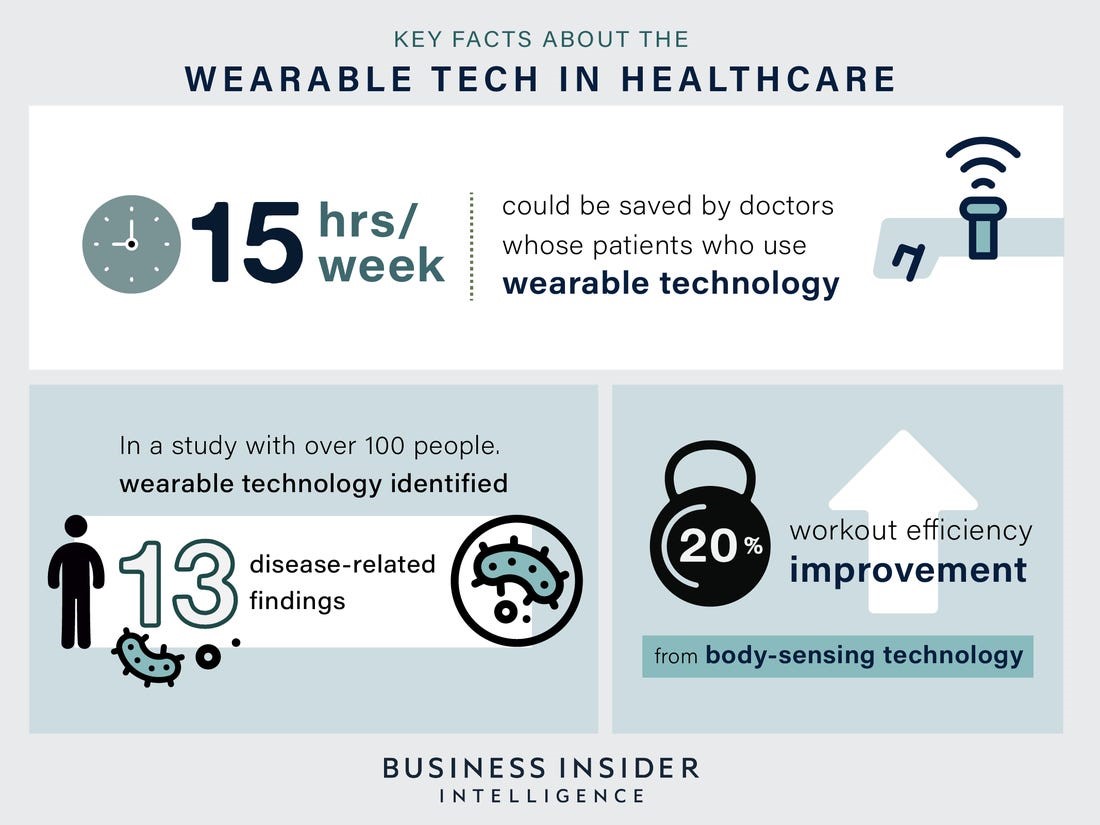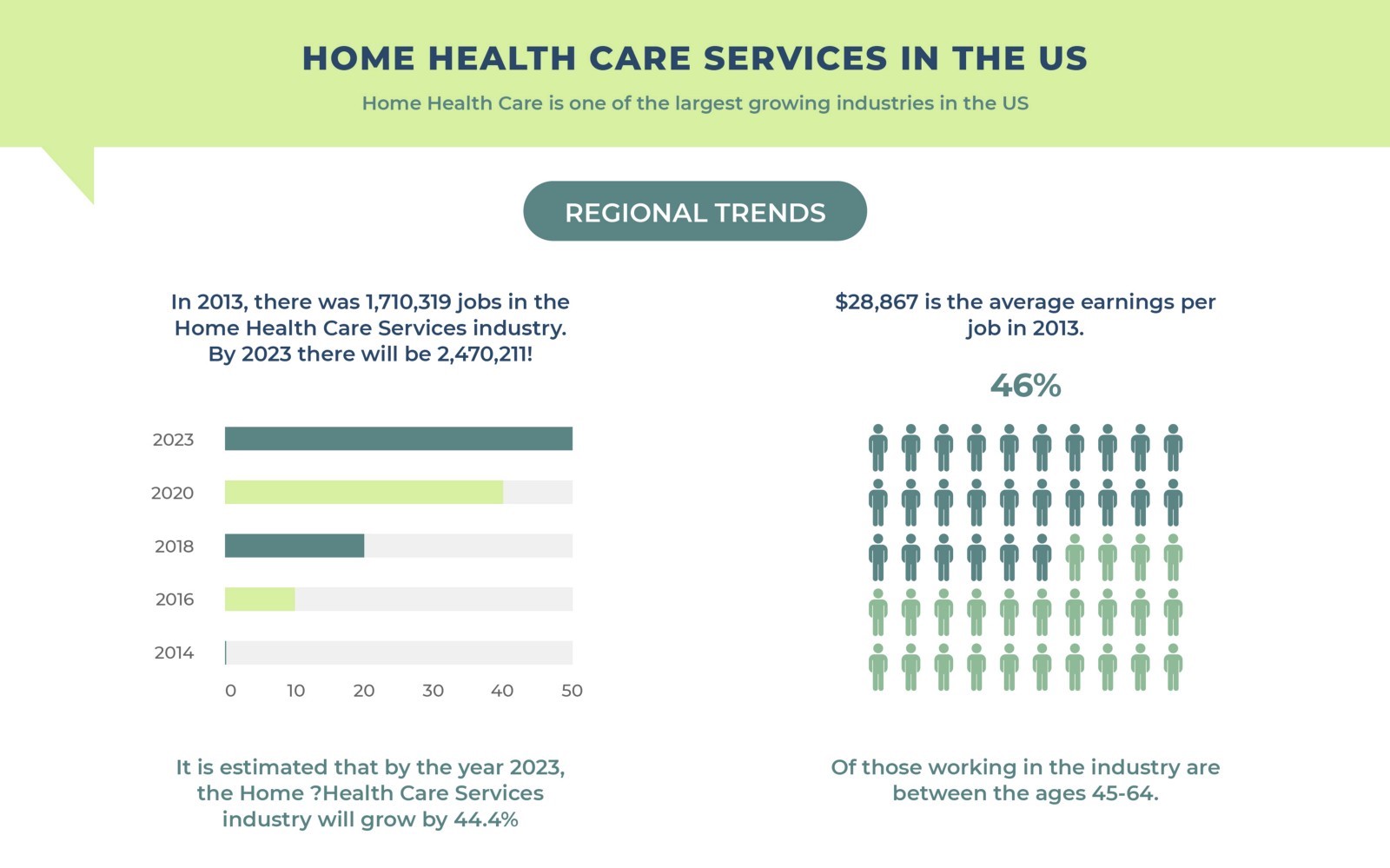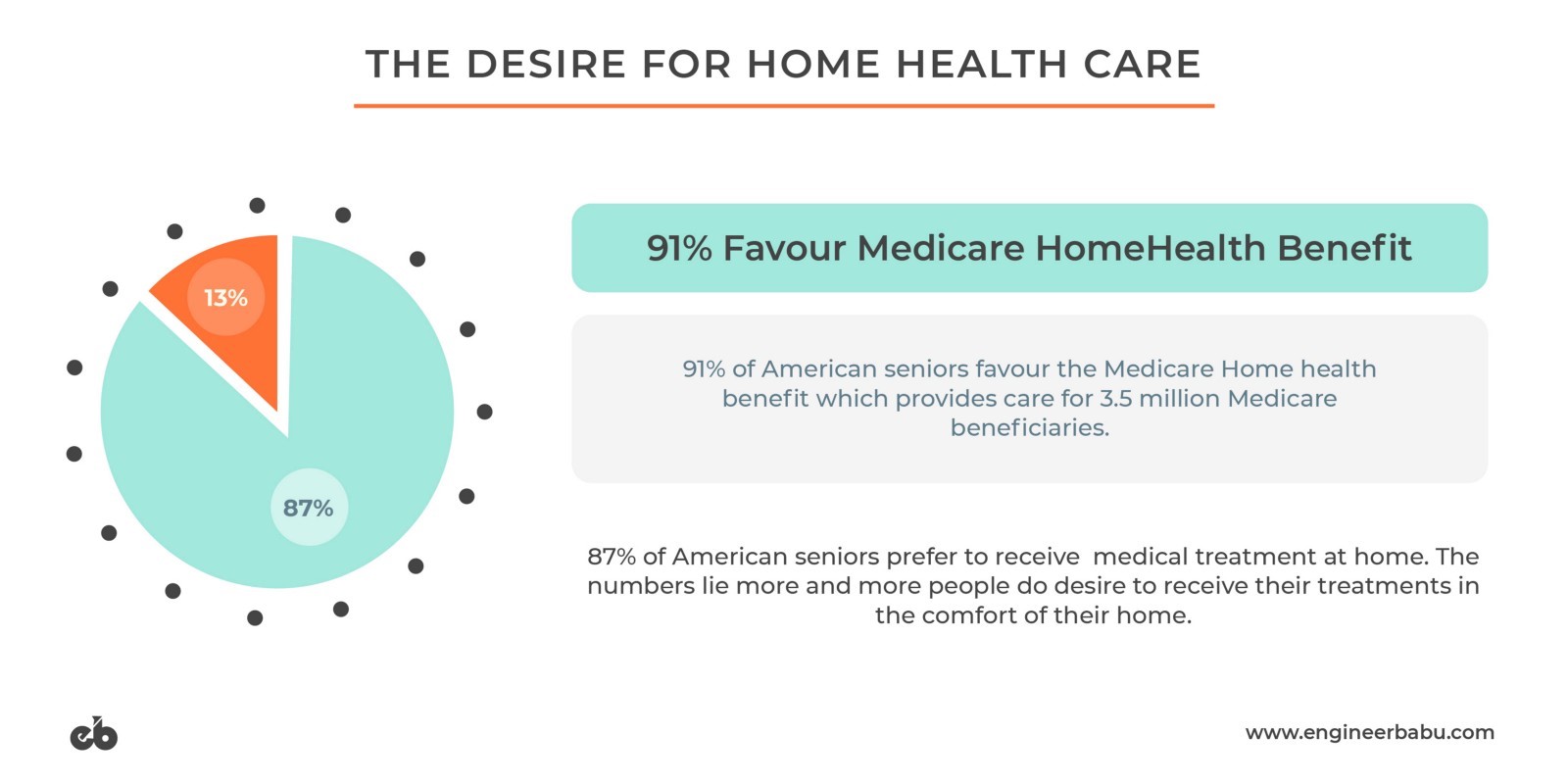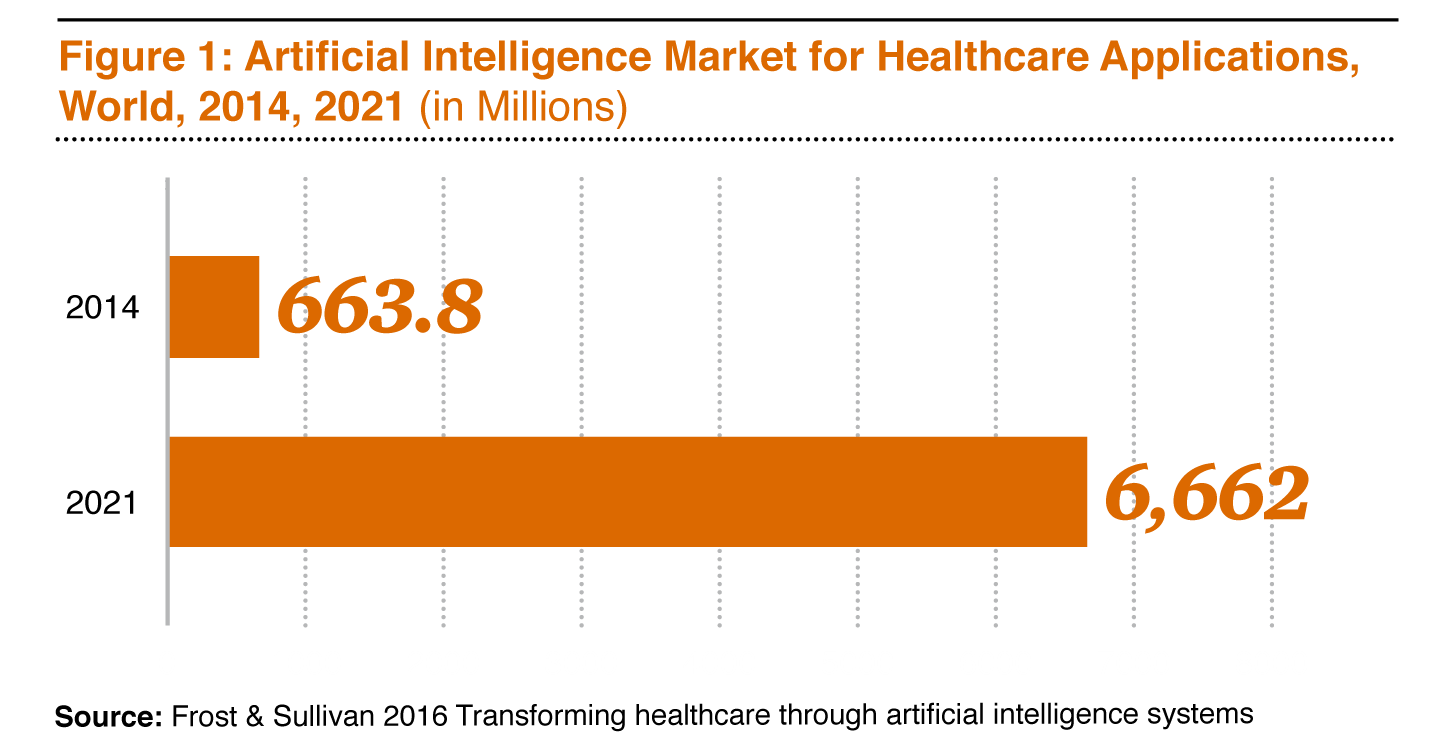
- Date: May 05, 2020
- Category:
- Digital Transformation in the Healthcare Sector
- Concern-Driven Innovation
- Home-Based Healthcare with Cutting-Edge Medical Devices & the Respective Emerging Technologies
- VR Headsets
- Sugar.IQ – An AI & Machine Learning-based Diabetes Monitoring App
- IoT-based Wearables
- Asthmapolis - A Big Data-based Real-Time Alerting System to Curb Asthma
- Realizing the Dream of a Sophisticated, Connected Home
We have come a long way from just “Home, sweet home” to an additional “Home, smart home.” In these years of transformation, one thing that has not changed is the feeling of a well being associated with our abode. Emerging technologies like Artificial Intelligence, Machine Learning, Internet of Things (IoT), Automation, Big Data, etc. have taken things to a higher level in making our homes smart homes. And yet, that, incredibly, is just the beginning!
About a few decades ago, there was a vision of a home, especially in entertainment and fiction, where everything could be done at the push of a button. Today, whether it is food or clothing, banking or communication, everything is on our fingertips. Smart homes, powered by emerging technologies, can link us to goods and services instantly, on-demand.
Digital Transformation in the Healthcare Sector
The healthcare industry, if not wholly, has still been significantly changed by digital transformation, which is creating new capabilities in providing healthcare for us to stay well. These technologies are always on the go and can thus empower us to take control of our health and well-being. AI, along with other technologies of Industry 4.0, is amending the ways in which healthcare is provided, that too, at the DNA level. Intel says there will be about 200 billion smart devices all over the world in 2020. Also, the smart home devices’ compounded annual growth rate was 31% in 2019, which is projected to become 42% by 2022.
Self-care becomes easier when patients do not have to take the pains of reaching out to a healthcare outlet every time something seems wrong. On this light, doctors consulting through videoconferencing, patient monitoring through the remote platform, online medicine purchasing rather than over-the-counter purchase, have revolutionized healthcare by allowing patients to take many of the overheads of medical care in their own hands opening new avenues towards self-healthcare.
Concern-Driven Innovation
A Plextek report suggests that 42% of the individuals in the age group 35-44 years have the concern that their loved ones are ignoring their health and not communicating about their illness.
Proactive knowledge about health issues is an essential requirement that can be met easily in the near future if smart homes are equipped with primary care capabilities. A positive development towards self-health care is the fact that in the next five to ten years, IoT-enabled smart devices will gain excellent connectivity equipping smart homes with healthcare-related technologies and devices.
Real-time health monitoring is a blessing that emerging technologies are making viable for the populace, especially for older people or individuals with disabilities, dementia, chronic pain, or mobility difficulties. Wearables, sleep monitoring, activity detection, and online consultation are some of the possibilities that emerging technologies promise to bring not only into the lives of the people with ailments but also the healthy individuals who believe in the age-old saying: “prevention is better than cure.” The best part about these technology-enabled smart medical devices is that emergency care can be alerted without any human intervention, not even a mere push of the button!
 Home-Based Healthcare with Cutting-Edge Medical Devices & the Respective Emerging Technologies
Home-Based Healthcare with Cutting-Edge Medical Devices & the Respective Emerging Technologies
The fourth industrial revolution is underway, and the transformation it has been causing has already disrupted domains and verticals. Let us find out what are the implications of some of these technologies and the products based upon them for home-based self-healthcare.
VR Headsets
The most remarkable feature of Digital Transformation in the healthcare industry is Virtual Reality (VR). The engaging, motivating, and non-invasive aspect of VR can tremendously enhance home-based healthcare. Headsets motivate the wearers to exercise and prompt parents about family hygiene, healthy habits, and vaccination requirements. Pain management can be taken care of in an engaging way without inducing drugs and opioids with side-effects into the body. Patients with mental disabilities can be administered to high-quality treatment at acquainted and comfortable surroundings of the home.
VR, along with AR, will have a value of $5.1 Billion by 2025 in the global market. VR had been limited to the entertainment industry for a long time, but its applications are widening into other spheres, with the healthcare sector being a prominent one, especially for home-based healthcare.
Sugar.IQ – An AI & Machine Learning-based Diabetes Monitoring App
An epitome of medical innovation, AI is the technology that is expected to shape almost all the aspects of the healthcare industry. The market of AI-powered tools in healthcare is expected to go over $34 Billion by 2025.
In the fall of 2016, Medtronic, a medical devices company leveraging AI & other related technologies, launched the Sugar.IQ app for its first users. Based on the glucose patterns, this app will help people with real-time messages to understand their diabetic condition better and take specific actions and follow some habits based on the continuously monitored glucose levels.
Talking about AI in healthcare might also bring to your mind “nurse-robots” or Moxi, a hospital robot with social intelligence. Moxi is a droid that helps nurses with their routine tasks in hospitals. It is not difficult to tweak a Moxi for a home-based setting.

IoT-based Wearables
Devices interacting with one another or with us over a network (mostly the Internet) is what IoT all about. It forms the backbone of home-based healthcare. Medical diagnostics take an enormous toll on one’s pocket in terms of hospital bills. IoT-enabled healthcare devices can move the tedious medical checks from the hospital to a patient’s residence, thus saving not only money and time but also giving the patients respite from the hassles of following a routine process in the hospital.
Wearables, another manifestation of IoT, are more about prevention and maintenance. Exercise trackers, heart rate sensors, oximeters, sweat meters, etc. help you to track your overall health at home. For high-risk patients, it provides up-to-date monitoring that can proactively flag any minor or major health event.

Asthmapolis – A Big Data-based Real-Time Alerting System to Curb Asthma
Big Data has given novel capabilities to most of the technologies of Industry 4.0 with vast volumes of data as the raw information to get meaningful insights. For the smart home, big data can come in handy for preventive healthcare. Asthmapolis, launched about a decade ago, utilizes the GPS-enabled trackers in the inhalers to identify the trends not only in the individuals but also among the whole population. Big Data generated is then used in developing better treatment plans at the earliest for people who have Asthma.
Almost all of the healthcare service providers would unanimously accept the case of frequent flyers—those patients that step in the emergency room in a recurring manner. Studies show they account for up to 28% of visits. With Big Data Analysis, healthcare practitioners can formulate preventive plans that keep them from returning to the nursing home or hospital.
Realizing the Dream of a Sophisticated, Connected Home
A healthy home is a happy home. Connected smart homes promise to enhance both the healthcare sector and the quality of human life. Data and technology, along with ethics issues, must be collaboratively addressed by the key stakeholders. They must create policies that safeguard the interests of the patients and their families. Technologists must also play their part by clearly communicating and advocating smart homes and the value they carry for a healthy living.
Integrating all the emerging technologies to make a smart, connected home is a challenge worth accepting. Because it will create a society where we will not only save time and money but also enhance our capabilities and the capabilities of our healthcare system.




 Home-Based Healthcare with Cutting-Edge Medical Devices & the Respective Emerging Technologies
Home-Based Healthcare with Cutting-Edge Medical Devices & the Respective Emerging Technologies

